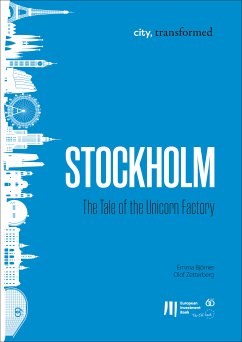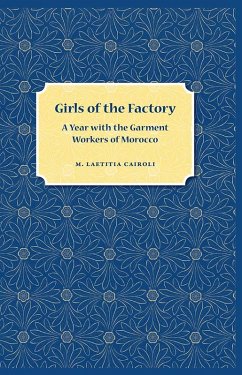
Life in a Railway Factory (eBook, ePUB)

PAYBACK Punkte
0 °P sammeln!
In "Life in a Railway Factory," Alfred Williams provides an insightful exploration into the gritty realities of industrial life in early 20th century Britain. Written in a vivid and accessible prose style, the book draws upon Williams's personal experiences as a railway worker and offers an authentic portrayal of the working-class ethos. Deftly blending elements of social realism with documentary-style narrative, Williams's work stands as a significant contribution to the literature on labor and industrialization, aptly reflecting the tumultuous socio-economic changes of the period while givin...
In "Life in a Railway Factory," Alfred Williams provides an insightful exploration into the gritty realities of industrial life in early 20th century Britain. Written in a vivid and accessible prose style, the book draws upon Williams's personal experiences as a railway worker and offers an authentic portrayal of the working-class ethos. Deftly blending elements of social realism with documentary-style narrative, Williams's work stands as a significant contribution to the literature on labor and industrialization, aptly reflecting the tumultuous socio-economic changes of the period while giving voice to the often-overlooked experiences of the working class. Alfred Williams, an accomplished writer and laborer himself, was deeply influenced by his background in the railway industry and the harsh conditions faced by workers during the rise of mechanization. His first-hand experiences reinforce his commitment to documenting the truth of industrial life, while fostering empathy for the working class. Williams's unique perspective as an insider, coupled with his literary aspirations, motivated him to chronicle this vital chapter of British history with sincerity and rigor. "Life in a Railway Factory" is not only essential for those interested in labor history but also for readers seeking a poignant reflection on the intersection of man and machine. Engaging and richly detailed, this work invites readers to appreciate the labor struggles of the past and their relevance to contemporary discussions about industry and worker rights.
Dieser Download kann aus rechtlichen Gründen nur mit Rechnungsadresse in A, B, BG, CY, CZ, D, DK, EW, FIN, F, GR, H, IRL, I, LT, L, LR, M, NL, PL, P, R, S, SLO, SK ausgeliefert werden.













